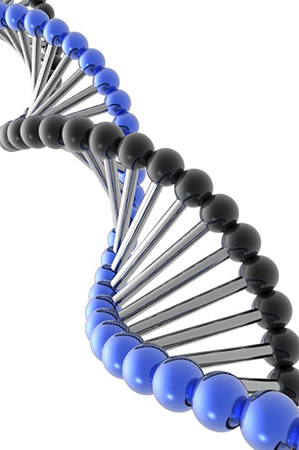 One guy has naturally wide shoulders and gains strength fairly easily as long as he goes to the gym regurarly.
One guy has naturally wide shoulders and gains strength fairly easily as long as he goes to the gym regurarly.
He start with a shoulder press of 70 lbs for 5 reps. This guy is the kind of guy who is naturally athletic.
Another guy has narrow shoulders and is a hardgainer when it comes to gaining strength and muscle, but an easygainer when it comes to gaining fat from eating.
He starts with a shoulder press of 45 lbs for 5 reps. This is the skinny-fat hardgainer.
The 2 guys train together and follow a regular strength training routine with 5 reps on the compound lifts, and an emphasis on increasing weights as often as possible.
The athletic guy eats whatever he wants, when he wants and he keeps adding weight to his lifts everytime he trains.
In contrast, the skinny-fat guy eats a strict, high protein diet, and tries to increase his lifts as often as possible to keep up with his buddy.
The skinny-fat guy get’s to a 70 lbs press, then stalls (for 3 training sessions in a row he cannot add weight or reps to his press).
In the meanwhile, his athletic friend has built his shoulder press up to 130 lbs for 5 reps, and keeps gaining muscle while staying lean.
The skinny-fat guy thinks he has to eat more to keep up with his friend, so he does that… BUT he get’s fat instead of skinny-fat.
Then he does a low-carb diet to lose the fat he gained, but he notices that he can’t progress at the gym because of the lack of overall calories and carbs.
After a month he goes from fat, back to skinny-fatness, while his shoulder press stays at the same weight.
He looks at his training log, and he can see that 3 months have gone by and he has increased his shoulder press with 25 lbs, but he looks no different than when he started.
What if the skinny-fat guy worked harder and had a better diet and training program? Wouldn’t he then be able to get much better results?
Perhaps, but he would most likely still get worse results than his friend with good genetics. Just take a look at the case study below, and you’ll see why.
Case Study of 2 Athletes: Naturally Gifted vs. Hard Worker
Last Christmas, I read a great book called The Sports Gene which tries to answer the question of what’s most important in sports:
- Nurture (personal experiences, work ethic, training, diet) or
- Nature (innate traits, genetics)?
In this book, David Epstein, provided an example of 2 competitive highjumpers: Stefan Holm and Donald Thomas.
Holm trained high jump, since he was a kid. He spent 20 years focusing on high jump, often training 2 times a day, having limited time for girlfriends and a social life. In other words, he was a hard worker with the right environment to succeed.
In contrast, Donald Thomas became a high jumper by accident.
While he was in university, the best high jumper of the university dared him to clear a 6”6 high jump, because Thomas had been bragging about his slam-dunking abilities.
Thomas accepted the bet and easily cleared that. Two days later, he cleared over 6”8, and qualified for the national championship where he broke the university’s record.
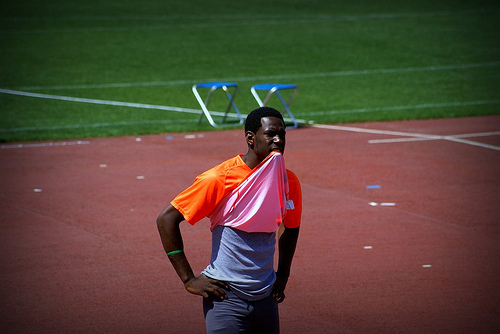 Shortly after, Thomas competed against Holm in the World Championship, and he won, despite having trained for less than a year while Holm had spent 2 decades working hard on perfecting his high jump.
Shortly after, Thomas competed against Holm in the World Championship, and he won, despite having trained for less than a year while Holm had spent 2 decades working hard on perfecting his high jump.
Was that because Thomas trained hard or had a “better routine”? Definitely not.
His coach stated that Thomas often left during practice to get a drink, and then he would go play basketball for 40 minutes, because he thought that high jumps are ”boring”.
Thomas had limited practice and lacking interest in high jumps, but he made up for it by having the right genetics.
This case study is an extreme of what happens in reality (most people are average at things), but it provides some perspective for the skinny-fat guy.
The Hard-Working Skinny-Fat Guy
The case study provides perspective in the sense that there are very few real skinny-fat transformations out there, because it takes so much time and effort to go from skinny-fat to fit.
Usually, you see a “fat-to-fit” transformation where a guy carries a lot of fat, but has some muscle underneath, so once he loses the fat, he already looks decent.
Or, you see the “skinny-to-muscular” transformations where a skinny guy eats tons of food while lifting weights, and gains 30-50 lbs in a year or two while staying lean.
Once you see those kinds of transformations, you may be tempted to compare your own progress to them, but the sad reality is that it takes more time and effort to transform a skinny-fat body type than any other.
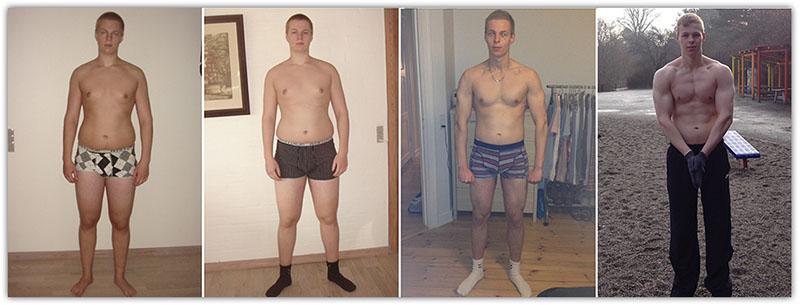 To go from the first picture, to the fourth I spent over 2.5 years training hard, and before that I had already spent 9 months at the gym lifting heavy (yes that’s right, I had been lifting for 9 months before the first picture).
To go from the first picture, to the fourth I spent over 2.5 years training hard, and before that I had already spent 9 months at the gym lifting heavy (yes that’s right, I had been lifting for 9 months before the first picture).
I know guys in real life who are more muscular than I was after years of training, despite the fact that they rarely lift weights.
And that’s the reality of the whole “nature vs. nurture” debate; progress is painfully slow with crappy genetics.
Relating back to the example of the 2 lifting buddies, the skinny-fat guy is at a disadvantage before he even starts lifting weights:
- He needs to get lean
- His starting strength is much lower than average
- He is a hardgainer when it comes to building muscle, but easygainer when it comes to gaining fat
Once you start training as a skinny-fat guy, you need to spend time on fat loss (something the skinny guy doesn’t have to).
When you lean down, you will have to build a decent base of muscle to look good (something that most naturally fat guys already have).
And finally, when you are lean and have a good base of muscle, you will have to cycle bulking and cutting to stay lean.
At this point, gaining 5-10 lbs muscle a year is all you can ask for.
In other words, as a skinny-fat guy, you have to put in a lot of time and effort to become succesful, just like the high jumper Stefan Holm did.
Nature vs. Nurture – Can You “Make” It?
I have skinny-fat genetics, and I’ve been training for a year with no results… Can I make it?
Yes, you can, just look at my first and second picture. Those are 9 and 12 months into training respectively.
The whole “nature vs. nurture” debate in The Sports Gene tried to show that if you want to be the BEST at a sport, you most likely need the right genetics, the right environment and great work ethic.
But this doesn’t apply to building a good body.
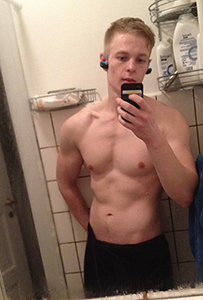 If you have skinny-fat genetics, you can build muscle and stay lean. It just takes more time and effort compared to other people.
If you have skinny-fat genetics, you can build muscle and stay lean. It just takes more time and effort compared to other people.
The good news is that once you have built a good amount of muscle and have a lean body, it’s easy to maintain.
In the pic on the right I have been eating a bag of chips everyday for 10 days straight and a lot of junkfood, but I didn’t gain any fat, because my body works in a completely different way compared to when I was skinny-fat.
But, to get to that point, you need the right mindset.
The Right Mindset to Transform
After reading that case study and relating it to my own 4 years at the gym, I can safely say that it’s a complete waste of time to compare your progress with the progress of other people.
Stefan Holm had to practice much longer than Donald Thomas to achieve greatness, but in the end he made it.
The year after the World Championship where he lost to Thomas and got silver, he won gold at the Olympics.
Just like Stefan Holm achieved greatness, you can transform yourself, as long as you focus on what YOU can change:
- Get good sleep
- Eat well
- Reduce stress
- Stay consistent with your training
- Surround yourself with supportive people
- etc.
When you don’t see results as quickly as other people on fitness forums or your friends at the gym, it doesn’t necessarily mean that you’re doing everything wrong.
It may just mean that you have crappy genetics, and your best weapon against crappy genetics is focusing on the things YOU can change and put in the time:
- Instead of thinking about why you “can’t” gain muscle or lose fat, start thinking about how you can make new habits that will help you get lean and/or gain muscle.
- Instead of thinking about getting ripped for the summer, start thinking about how cool it could be to be that “old guy” at the gym who is in better shape than everyone else.
You need to think about fitness as a marathon rather than a sprint.
While most guys will quit training within a year or two, you want to be the guy who keeps training while squeezing out any gains possible.
Who cares if you have to put in 3 or 5 years of hard work to build a body you’re proud of as long as you make it in the end?
____________________________________
Image Credit (Donald Thomas): EO Kenny
Image Credit (Stefan Holm): Henrik Ismarker
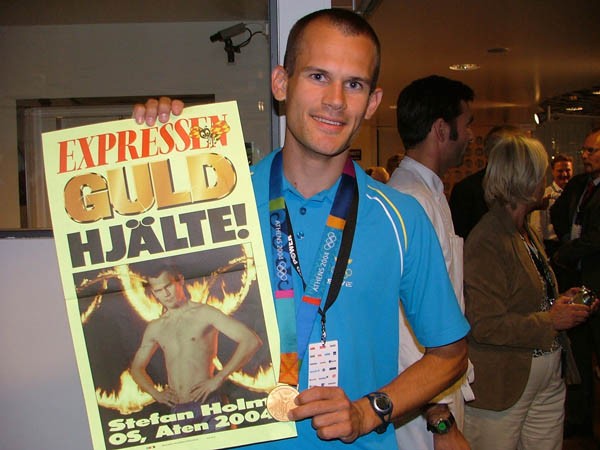
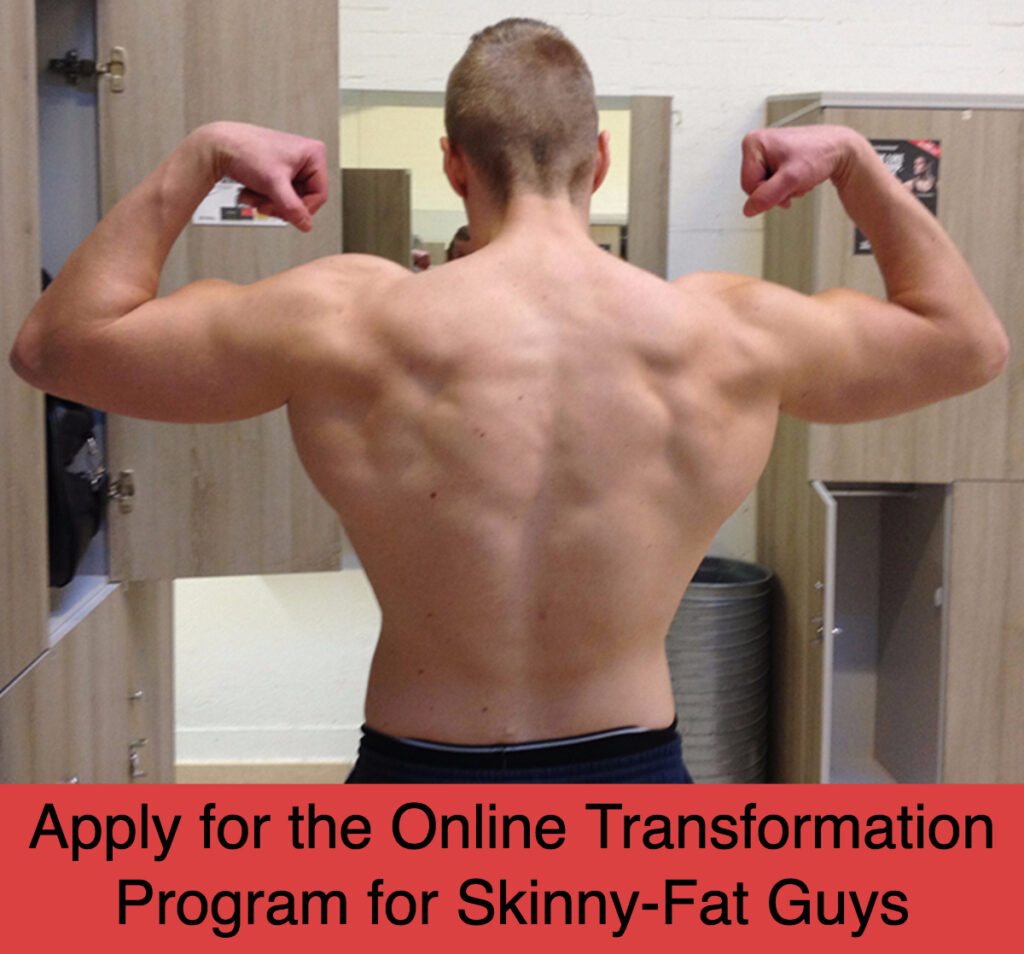
 How to Count Calories For More Lean Muscle Mass
How to Count Calories For More Lean Muscle Mass
So how exactly do you tell if you have bad genetics? I’m 6ft 68kg/150lbs and my first deadlift 1RM was about 100kg/220lbs and my bench was 56kg/123lbs and I can do about 6 pullups, but I also have wide hip bones, tiny ankles and wrists, skinny arms and a decent amount of fat (~20%). Is this bad?
First of all respect for the great work you are doing for all.. My issue is that i am a 5’7″ guy and weight around 54kg dat means i m a skinny guy nd i do want to gain muscles i hv already done the gyming for around 2 years nd have build up a little of chest and back muscle bt that is not what i desire for can uh plz help me to gain some muscles as well further i am a vegan nd acne prone to eggs nd don’t want to have supplements.. Plz do help me if possible
Praatek, thank you!
You can sign up for the coaching waiting list at:
http://oskarfaarkrog.com/coaching
Or check out my online personal training at:
http://oskar-faarkrog-fitness-store.myshopify.com/
Hey Oskar,
Great article. I myself have always been a small statured guy (the genetics you talk about) and it was almost impossible for me to gain weight. No matter how much protein I’d eat I didn’t seem to bulk up. It also seemed like if I took a week off from the gym it’d set me back 5 weeks of progress, it was horrible. I finally started looking into some natural supplements (none of those ‘legal’ steroids or anything) and changing my diet, this really was what I needed. Some bodies just need that little extra boost I think. Genetics definitely require some to be more dedicated than others to see results. Overall, great article!
-Tim
I really liked this post, a very detailed breakdown of a huge debate.
“You need to think about fitness as a marathon rather than a sprint” <– So true, most of the time people want to see results immediately and they are then disappointed when they learn that it takes time to build a great physique.
The book sounds great will check it out.
Thanks Matthew, definitely check out the book!
Hey Oskar,
Really, really, nice post and very true as you point out. I also notice the progress you are making and you are gaining a lot of muscle. You are really progressing. My nephew is following a similar path like you and is also making some nice gains as well. Keep up the great work. I really learn much from you. You are really a smart technical in physique development.
Thanks for the compliments, always nice when someone notices your progress!
Hi Oskar great article. I found your site a few days ago and read every article and your e-book, you really have a knack for writing this stuff, I hope you keep writing more.
All the gyms near my apartment are either extremely expensive or very crowded so I have decided to try working out at home. I am interested primarily in looking good, not about strength. Right now I am 6’3, 190 lbs, I have a chubby 36″ waist, narrow shoulders for my height, and my arms are only 13.5 inches. Do you think I can get good results by doing only pullups, diamond pushups, and handstand pushups (I can’t do those yet)? I don’t want to get super ripped or anything, just decent looking.
I have purchased the Iron Gym pullup bar and have been working with it for the past few days. I can do 8 chinups with a close grip but only 3 with a wide grip, I guess that means my back is very weak? I have a question: Is it better to do my pullups randomly throughout the day, for example one set now, one set an hour later, another set another hour later, etc, or is it better to do all my sets at once with only a few minutes rest in between and then not do any more that day?
Also I have a 30lb dumbbell and have been doing dumbbell rows, what do you think of those for building a bigger back?
Thanks Elmer, I will definitely keep writing more, got about 10 articles in draft and +50 article ideas written down.
You have a similar build to me, although slightly more fat and less muscle. Bodyweight training works extremely well for tall guys, because you have longer limbs and weigh more, so each rep is going to be harder compared to a smaller guy with shorter limbs.
To answer your question, you can easily get a decent looking body with nothing else than bodyweight training. Follow the advice and routine in this article: https://skinnyfattransformation.com/bodyweight-training-skinny-fat/ (do your sets at once with 3-5 minutes rest between sets).
This will get you to 15 chin ups and 20-30 diamond push ups in no time. Once you get there, you should have a good body.
As for wide grip pull ups vs close grip chin ups, it’s normal to be weaker on the wide grip. If I was you, I would leave the wide grip pull up and just do regular chin ups and get to 15-20 reps on those. Keep it simple for now, you can always add them later on.
Finally, the rows aren’t necessary, but since you have the dumbbell do rows at the end of your workout. Just do a lot of slow reps with short rest between sets to get a really good pump in your upper back.
Oscar, do You thought about starting a special forum site for skinny-fat people?
I haven’t thought about it, I find the blog being very time consuming already, but perhaps in the future.
great article what were your waist/arm measurements before after etc? I have been training for a year and have only gained around 2-3lbs but have added around 50kg to my squat and deadlift and around 15 reps to my bw exercises… my waist is still very large…around 37-38 inch relaxed but does not look as bad as when I started I am 5’11 and 190lbs at moment
Kieran
That’s good progress.
I can’t remember exactly, but here are estimates:
Waist: 100 cm, now 82 cm
Shoulders: 110 cm, now 130 cm
Arms: 33 cm (fat), now 37.5 cm (very lean).
Height: 191 cm
Bodyweight: 90 kg, now 84 kg
Going by your stats, it sounds like you should focus on fat loss now.
Do You build arms using only chins-up witchout curls?
I have used curls before, but my best growth happened when I supersetted close grip chin ups (hands touching each other) with diamond push ups.
I am going to start dieting away on vacation in a fortnight but will send you some pics before/after am hoping to lose a few inches from my waist
Thanks
Sounds great, looking forward to see your progress!
Hey oskar! Great stuff here! please take your time to read my story and answer my questions! thanks :)
i too am a skinnyfat sufferer and decided to start working out a year ago. When i started, i did isolation machines, curls and cardio with no real free weights. My diet was just pretty much eating anything i wanted. i am 5’4 110lbs currently, started at 117lbs. During the first few months i was dropping weight very slowly and getting slightly leaner and gaining a bit of strength, then i started doing free weights and tracking my calories. i ate anywhere from 1600-2000 calories a day while weightlifting. i started gaining strength and some muscle while getting leaner. Till then, i have pretty much eaten 1800-2000 calories every day while lifting weights, and no cardio. i got down to 106lbs from 117 lbs however my arm size was the same 12″ but it was 12″ fat at 117lbs and now its 12″ but its very lean and no fat at all so my arms didnt get “bigger” however i know i gained some muscle. Not just arms this was all around my body, i did not get bigger but i got leaner while staying the same size so you could say muscle gains and fat loss was simultanious. however, although my belly did get smaller and i started seeing more tone on my stomach, i still dont have a 6pack as you would expect someone as light as me to have. so i defcided to cut in august which was 8 months into training. when i started my cut i was 110 lbs i cut my calories to 1600 everyday with lifting and no cardio then i got down to 106 lbs and got leaner i gained some ab definition, a 4 pack only visible in the best lighting. that was a fail. my cut lasted from august to september. i then started eating around 2000 calories a day while lifting till now i am roughly still 106 lbs however just leaner so i have gained muscle but very slowly however i am scared to bulk now.people say IIFYM works and i did it for my cut i ate 1600 calories of anything i wanted and i got leaner but for bulking i think its wrong as if i eat a surplus of calories for example a 500 calorie surplus, which would be 2500kcal as 2000kcal is my maintenance i think i will get fat because skinny fat people are insulin resistant, and that the type of carbs you eat would actually matter
what do you think i should.do now? if you read this thanks a lot please help me
Hey James,
It sounds like you lost fat and gained muscle, and that you’re lean right now, right?
If that’s the case, then you’re in the perfect position to do the short bulking and cutting cycles as outlined here: https://skinnyfattransformation.com/how-to-bulk/
Don’t worry about getting fat. Just train super hard during the bulking cycles and eat when you’re hungry, and get your carbs in. You need carbs to train hard and look good (low carb diets make you look flat).
With that said, you should experiment with differet carb sources to see what you respond best to. For instance, I can eat white rice all day long and feel great, but bread makes me feel sluggish and I get bloated from it.
thanks a lot, oskar. i had an appointment with the doctor today and i may have found the cause of skinnyfatness. my doctor luckily is in to weight lifting and working out so we had a long conversation and he told me it is how some of us are genetically disadvantaged with how insulin distributes glucose in our body and also how our body does nutrition partitioning. skinny fats have high insulin resistancy and most of them are sedentary with no activity, which makes it worse as you gain weight over the years but not any muscle because your insulin distributes your glucose in to your fatcells mainly instead of turning it into glycogen for muscles. hence why we put on weight where we have most fat cells, like our lower back, love handles and abdominal.
i have one more question now, i saw your transformation video, and you had 17 months of cutting fat. i saw that you were pretty lean after 17 months and then you showed a couple months of your bulking phase, i want to know how much weight were you gaining every week when you first started bulking, and how much was your caloric surplus? also, did you gain a lot of fat? and how much total weight did you gain at end of bulk?
thanks!
oh and when i said i was lean, i am pretty lean around my body arms are cut, chest line, i am pretty vascular its just that i have quite a bit of fat left in my belly.
thanks for taking your time and helping me out, you are doing a great job and inspiring others!
Sounds great that you have a doctor that understands training and skinny fatness, most people don’t have that luxury.
I didn’t note it down, but in a few months I gained 13 lbs, and just 1 inch or so around my hips and waist. I gained about 5 reps on my chin ups despite gaining bodyweight and my arms grew by over an inch, while my shoulder gained 2 or so inches.
I gained some of the weight quite fast because I had been doing a low carb diet before this. After that, my weight stayed fairly constant with very minor changes.
thats great! did you do any cardio at all when you bulked for the first time? i am like 50kg so i am hoping to gain 5kg/12 lbs i will start bulking now. also, when you said you were on a low carb diet before, how much carbs were you eating and then how many carbs did you start eating when you started bulking?
thanks a lot for your help!
I didn’t do any traditional “boring” cardio like the treadmill, but my bodyweight workouts were cardio. I did single legged squats + chin ups + diamond push ups without a break for 3-4 sets. That’s a lot of reps, and I did all reps with good time under tension, so I was all sweaty and out of breath.
I don’t know how many carbs I ate, but my low carb diet was basically 5 days of eating almost no carbs, then on the 6th day I would eat a lot of carbs, and repeat.
Once I started bulking, I just ate as many carbs as I wanted, depending on my hunger. This varied a lot, but a typical day would be 3-4 pieces of rye bread for breakfast and 250 grams of white rice (uncooked) for dinner.
awesome stuff, btw have you heard of carb backloading? i heard it is great especially for skinnyfat individuals like us,
No, what is that? Is it similar to carb cycling?
oh damn dude, youre gonna have a good time reading about it for sure!
its pretty much the best thing we can do while trying to lean out, we dont have to sacrifice the carbs and eat whenever we want
ill summarise it.
First you start off with a 10-14 day prep phase in which you continue your workouts normally, but in your diet everything stays the same apart from that you can only eat up to 30g carbs a day for 10-14 days, meaning your diet for for these 10-14 days will be high protein and high fat. this is to get your body to optimize and use fat storage and fats as an energy source and burn fat better rather than using carbs for energy.
now once the prep phase is over, heres the fun. you baisically start your day as you wake up you do not eat breakfast, or anything for 2-3 hours of waking up. then whatever you eat before your workouts must only be proteins and fats. this is because when we wake up, we are insulin sensitive. hey thats a good thing right? yeh if you are already ripped. what people dont know is that in the morning when your muscles are insulin sensitive, so are your fat cells and if you are not very lean to start with they get stored towards fat cells. so 1. do not eat for 2-3 hours of waking up and as the day goes on any thing you eat before your workout should be protein and fats and no carbs. after you workout, you carb backload, eat whatever and any carbs you can this can be done in a caloric deficit or a surplus, leaning down or gaining lean mass.
reason why it works is because when we wake up we are still burning fat and when you eat carbs, it causes our GH to stop doing that. and the carbs we eat get used as energy instead of the fats. during the night when you carb backload, you are insulin resistant. but when you workout, GLUT4 comes out of muscles to absorb glycogen, regardless of insulin sensitivity or resistance. i tried my best to explain but please read more on it i am on my 3rd week of carb backloading and i have gained 2lbs and i have gotten a little leaner!
You
Sounds interesting, I’ll do some reading on that.
How do you feel during this diet? I always crave carbs in the morning (can’t focus well without carbs).
first 3 days it took me a while to get used to but then i realised, everytime i had carbs in the morning or whenever, i felt dizzy and wanted to sleep all the time because of all the insulin spikes and as for energy in workouts, its actually gone better on this diet because i use fats as energy now and as little as 1 serving of peanut butter, 2 eggs and 1 serving of cocconut oil keeps me very energetic and i dont get the same tired/sleepy feeling anymore also, because you carb backload in the evenings and before bed you dont look bloated during the day and can see what you actually look like :d within the first week i found that i was much leaner than i thought! because of all the carbs in morning i was always bloated and thought that was me! :D but yeh read more about it
interesting stuff!
Hi Oskar! :)
What do You think about abrevaited routines form Stuart McRobert (Brawn book) for skinny-fat guys?
You recommend high frequency but Stuart say to give more rest for muscle and nervous system for really hardgainers: in his opinion 3-9 days of rest and workout 1-2 days per week with 1-3 sets is good idea.
Hi Mat,
I haven’t read that book, but I believe the idea of training 1-2 days a week is bullshit.
If you’re serious about changing your body, I would never train just 1-2 days a week. I would aim for 4-6 days a week (4 during cuts and 6 during bulks). Most of the ripped guys I see at my gym are pretty much always there when I train, and they train for a long time.
With that said, the idea of doing 1-3 sets on each exercise is not bad. I have tried that, and it works quite well as long as you put all you got into your first set and go to failure (or beyond), but to get to the point where you can benefit from that kind of training, you need to do a lot of sets and reps (volume).
Oskar,
Great site and wonderful information – thanks for sharing.
I have a question. You said, “but to get to the point where you can benefit from that kind of training, you need to do a lot of sets and reps (volume).”
How many sets/reps (volume) are you talking about. In many of your articles you talk about 2-4 sets per exercise. Are you talking more than that per workout when you talk about volume or just more workouts per week to get the desired volume?
Thanks
P.S. In your article on time under tension you mention using a normal rep speed until you get to a certain number of reps (12-15 on chins). Is there a certain number of reps you recommend before changing rep speed on push-ups or leg work?
Thanks for the compliment Brett!
It was a very general statement, and there’s no specific answer, but what I meant is that you need to train for a long time and get used to the exercises you do before you can benefit from doing just 1-3 sets a week on an exercise to failure. So, if you’re a beginner, you can easily train the exercises several times a week with 2-4 sets, but once you have trained for a while, you will be able to push yourself to the point where you can do that just once a week and benefit from it.
For instance, 1 set for me can look like this if I train with high intensity:
12-15 very slow reps on cable rows to failure where I only use my back to pull the weight, then drop the weight one pin and do it again, then drop it again 4-5 more times and take each set to failure (long dropset). Once I’m done with the lowest weight on the machine, I wait 10 seconds or so, then do a final set to failure again followed by a set of chin ups to failure. So, in ONE long set, I do 6-7 sets to failure where I only use my target muscles and no momentum.
This is the type of sets I do right now, because I don’t benefit from straight sets anymore. I can go to the gym and do 3 sets of 5 on shoulder press with 60 kg, but my muscles don’t respond to that kind of stress anymore. I can use that to maintain my current size and perhaps gain a bit of strength but not to gain muscle.
In contrast, a beginner can easily benefit from regular sets, while he wouldn’t benefit much from doing dropsets on cable rows followed by chin ups to failure because the body is not ready for it yet.
About rep speed on push ups, I have covered it here: https://skinnyfattransformation.com/build-beach-muscles-diamond-push-ups/
I will say that if you gain 5 pounds per year, then you’re lucky.
And you look awesome man.
The great thing about not having good genes is that you have to learn how to get a great body.
Someone with great genes never learned how to attain a good body. Sooner or later, you will get old and your genes will start failing.
That’s why everyone gets fat after 40.
If you were born with bad genes and learned how to have a good body, then you will be able to keep it up past 40.
Thanks man, can only same the same about you.
“If you were born with bad genes and learned how to have a good body, then you will be able to keep it up past 40.”
Good point, but I think that a lot of people already slip up before 40. I see guys that have good genes, that gain a lot of weight in their late teens/20s from drinking several times a week and eating junk all the time.
Wonderful article again. Nothing could be closer to the truth.
Once a person with no muscle, toned with fat, with zero regeneration ability, realizes, that only years of consistent workout, WITHOUT the physical stress of “adding to the bar” every workout, (or progressing every workout), is going to yield results.
You just pick Oskars extremely easy routines and do them, every day. No matter how tired you are, you can always do at least 2 sets.
What unworthy skinny fat should achieve is the inner drive, that gives you sense of incompletion of the days goals, if you don’t pull yourself to the bar, and push yourself from the floor.
This should tick in one’s head for his lifes eternity, and then you get worthy.
To summarize my workout.
I combine Oskars approach with Mehdi’s 5×5 approach.
Majority is Oskar’s type workout, and every week or more (depending on own feeling), I do 4 exercises, 5 reps, 3 sets. Bench press, squat, weighted chin up and single motion clean&press.
This is my current add for strength.
It is no problem to do only Oskars workout for a year or forever. Once you familiarize your body with same, hard movements from this BW exercises, you’ll be amazed of the hardness and stamina you get in the upper body. Add BW squats, and thats it for the whole body.
I would like to point out, that I got testosterone levels tested, putting me in a 10 years younger male group.
But still I’m far from being happy with my body visuals, still too lightweight. I can not say the same for strength and endurance, which are best in my lifetime, soon turning 37.
I would now like to mention stomach acid.
Once young, I was diagnosed with low acid. This in turn gives you poor vitamin, mineral and protein absorption. Also it is not killing bacteria properly, so it might venture in the gut, and also bacteria from gut could resurface in the upper respiratory system. Bloating, poor digestion, malnutrition, undefinable sickness, low appetite,…etc. Everything can emerge from this.
What causes it, how to treat it? I don’t know. Is it inherited? probably. Curable without pills? no clue.
I believe this is why my body size progress is limited, poor digestion and not being able to eat much.
If I somehow manage to overfeed, food lays hard in the stomach for hours, resulting in bloating, no appetite. No food, no nutrients, no body growth.
This is why progress is extremely slow, and I think that all true hard gaining skinny fats share the same problem. An ability to digest quickly and pull nutrients out of food.
Thats why they say, one should drown himself in protein. But in reality, 60g/day is completely enough, if digestion is OK.
Thanks for the comment Denis,
You’re right about most skinny-fat guys having problems with using the nutrients from food properly. I and many of the guys that email me, have trouble with high protein diets, lactose and wheat.
I get bloating from pretty much all carbs besides potatoes and white rice, and I get constipated from high protein intake and lactose.
Another great read, i actually look forward to these updates.
Thanks, there will be more articles about genetics soon.
Wonderful article Oskar!
Thank you Ron, I hope it’s going well with your training! You’re an inspiration for us younger guys.
Yes. Still going well and feeling great!
Sounds awesome man! How many chin ups are you up to?
Excellent article. Points out the reality of why some guys seem to get ripped with less effort. Gotta realize this is a long-term lifestyle instead of a new year’s resolution.
Thanks for the comment, I’m glad you enjoyed it!
Another excellent article!! Wish I had found such a clear explanation when I was younger. Anyways… better late than never.
Now I would like some advice from you (again ;-))
I’m a (former?) skinny fat guy who used to look very similar to your first picture above.
Since I found your site, I’m following your approach on BW training and dieting and I’m improving my physique a lot!!. However, I see that my hips are still a bit wider than my waist, creating a gap between my hips and my chest. which goes against the desired V type body shape.
I see you don’t have this problem anymore. I’m working my back very hard, but It seem that my lats begin just above my waist, so I don’t think they will help.
Have you experienced the same problem, sometime during your transformation? Did you work your upper obliques to revert that look? Perhaps it is just a matter of dropping a little more fat.
Thanks in advance for your help Oskar! Best regards
Thanks Fernando,
I’m glad your physique is improving with the BW training!
I know what you mean about the hips. I still have fairly wide hips, but it doesn’t show much because of my lats being much wider.
I never worked my obliques directly, but I still have that gap (not visible in pic because of angle).
Send me a pic, then I could perhaps point you in the right direction.
Thanks Oskar for your prompt response. It would be great to send you a pic to get your advice. I’ll do that soon!!!
Amen brother!
People need to realize that transforming your physique is all about the journey and not about the destination itself. Even when you’re struggling and you’re not making any significant progress, you’re actually learning what doesn’t work for you.
A lot of people fail to realize that so they quit prematurely :)
And a good thing about crappy genetics is that, the muscle you actually gain means so much more to you compared to someone who had endure little to no struggle building it. That’s why I believe that guys who had a hard time achieving their physique goals are much more likely to endure over the long term.
As long as you keep at it, gains are sure to come!
Dejan
You’re right Dejan; when you’re a skinny-fat hardgainer, all the gains you make, mean so much more to you. I can never see myself quitting training, since my gains mean so much to me.